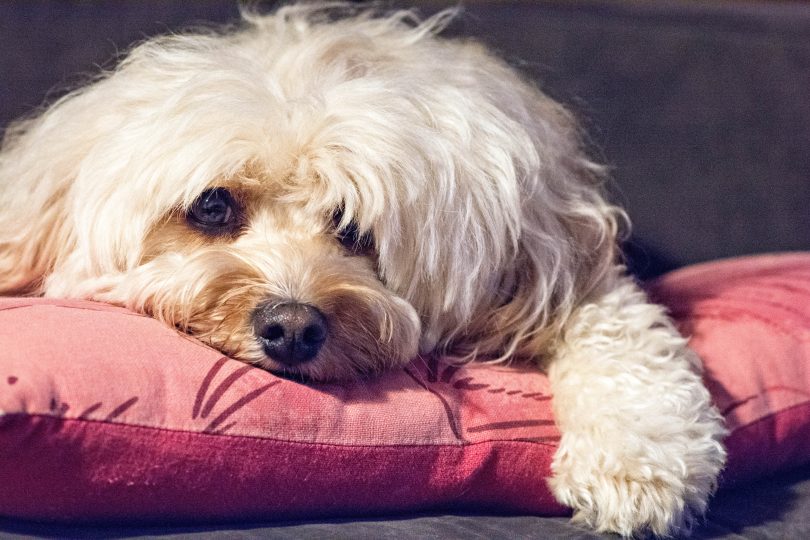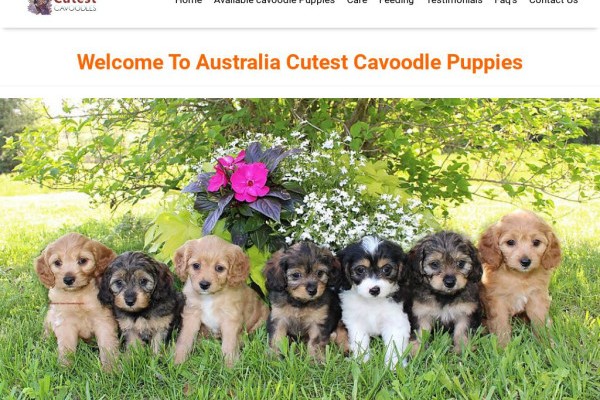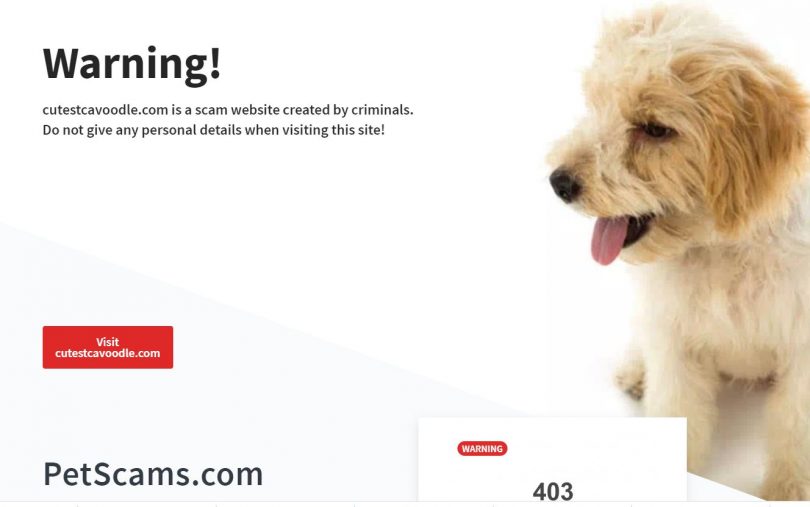
A beautiful Cavoodle dog. Photo: Nicki Mannix.
The super cute Cavoodle breed of dog is a cross between the Cavalier King Charles Spaniel and the toy, or miniature, poodle. It is an increasingly popular breed and can sell for thousands of dollars. In recent weeks, Braidwood has unwittingly been targeted as part of a Cavoodle puppy scam that is targeting dog lovers.
The fraudulent website, cutestcavoodle.com, had a fake location of Bombay, just outside Braidwood, and Braidwood Vet Surgery has received several calls from people calling to check whether the breeder is legitimate.
However, some people were not so lucky and did not research before laying down a hefty deposit.
Sandra from Sydney paid a deposit of $700 on a puppy, but was feeling uneasy about it so she rang a friend who is familiar with Braidwood to check up on the name. She had spoken to a man on the telephone before depositing the money.
The man gave an address of an untenanted house in Araluen Street as the pickup address. The same address had been used previously with another woman who had forked out a $3200 deposit for a pair of puppies. Upon arriving at the residence, there were only cleaners in attendance.
Sandra discovered that another couple who had driven from Orange to collect their puppies had paid $1700 upfront.
The Braidwood Visitors Information Centre had also fielded calls about the scam website. They were also made aware of a similar Kelpie scam via Gumtree, with an address in Braidwood, last week.
The information centre also received a call from a lady near Mudgee, who had requested one of the puppies advertised on the fake website and just wanted to check it was genuine as she had an inkling it might be a scam as there had been others.
The cutestcavoodle.com website was disabled on Tuesday morning after Region Media contacted the Australian Competition and Consumer Commission (ACCC).

The cutestcavoodle.com website looks innocent but is operated by scammers. Photo: Supplied.
The ACCC says scammers have been targeting people seeking a furry companion during COVID-19 social isolation.
The ACCC’s Scamwatch website has received 1047 reports of puppy scams between 1 January and 31 July, 2020, with almost $1 million in reported losses.
By breed, the number of Scamwatch reports received in 2020 are: Cavoodle, 184; French bulldog 60; golden retriever 33; Pomeranian 23; and pug, 21.
The ACCC advises the public:
- Be cautious – if the advertised price of a pedigree puppy looks too good to be true, it probably is.
- Don’t trust that an ad is legitimate just because it appears in a reputable newspaper or online classifieds website – scammers often post ads in these mediums.
- Avoid any arrangement with a stranger that asks for upfront payment via money order or wire transfer – it’s rare to recover money sent this way.
- Search online using the exact wording in the ad – many well-known scams can be found this way.
- Search for an entire sentence from a review on the testimonials page of the website to see if the same review is used on other suspicious puppy-selling sites. Place the words you are searching for in quotation marks to ensure you’re finding exact matches.
- If you are in doubt, seek advice from someone in the industry, such as a reputable breeders association, vet or local pet shop.

The petscams.com website identified this Cavoodle site as being fraudulent. Photo: petscams.com
Braidwood Vet Surgery advises buyers to speak to the breeder over the phone and ask questions:
- What date was the dog vaccinated?
- Is it microchipped?
- When was it last wormed?
- What is its location (as you will need to travel to pick it up)?
- What is the date of vet check (including a report from the vet about its health)?
Request a copy of the dog’s records. You can then phone the clinic that has been caring for the puppy to verify the breeder – think of it as checking a reference. Request lots of updates and pictures, and to visit prior to paying a deposit.
You can also check the breeder complies with current NSW legislation. It is now a requirement that all puppies are advertised with either their microchip number, breeders registration number or re-homing organisation number.
If the seller claims they are a registered breeder, check here.
Braidwood Vet Surgery also offers this advice when looking online for a puppy:
- Australian breeders should have websites with .com.au on the end.
- Check the spelling and grammar – simple mistakes such as ‘Australia cutest puppies’ are a dead giveaway of a scam.
- Copy some random text from the site into Google (no doubt you will find it on another site).
- Copy an image into images.google.com or right click on image, and select ‘search google for image’. Is it a one-of-a-kind image, or from another website. Are there similar images, but on other websites?
- Testimonials have very little value – very few people will write a review stating they paid the breeder extra dollars because they love their pup so much. Australians also use the date system “dd/mm/yy” not “mm/dd/yy”. Why not copy a testimonial into Google to see what other pages have the same words?
- Contact methods – a reputable breeder will give a location, phone number, possibly even a Facebook page. A reputable breeder will want to ask you questions to ensure you are going to provide a suitable home for a puppy.
- Check the website a few times – are there any changes or updates to the available puppies? Most puppies get sold very quickly so are the same ones always available?
- The site should list the date of birth, age or a date when the puppy is ready for a new home (which should be at eight weeks of age)
- Puppy photos – are all the photos similar with the same background? If a litter has, say, five puppies, why are five puppies not pictured at the same time with the same surroundings?
- If it’s too good to be true, it is! That includes price – is it within a reasonable range?
As for Sandra’s missing money, she reported it to Crime Stoppers and rang her bank but does not expect to get it back.
Anyone who has come across this scam should report it to the ACCC’s Scamwatch.
Scams Awareness Week runs from 17–21 August as part of a national campaign by the Scams Awareness Network.
Original Article published by Alex Rea on About Regional.












